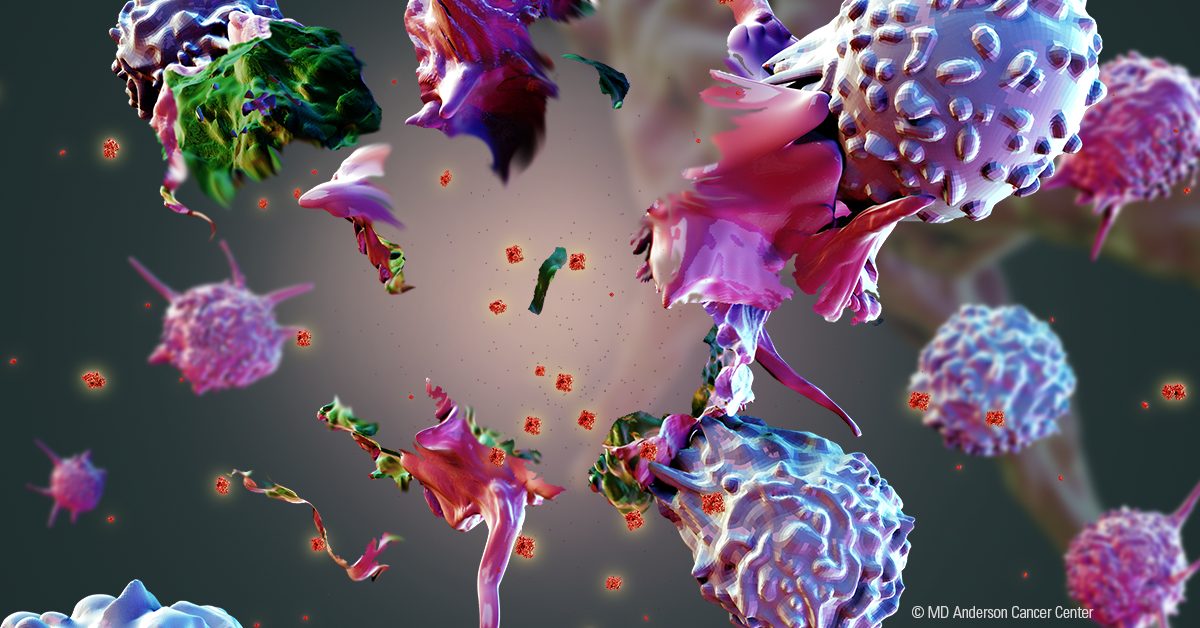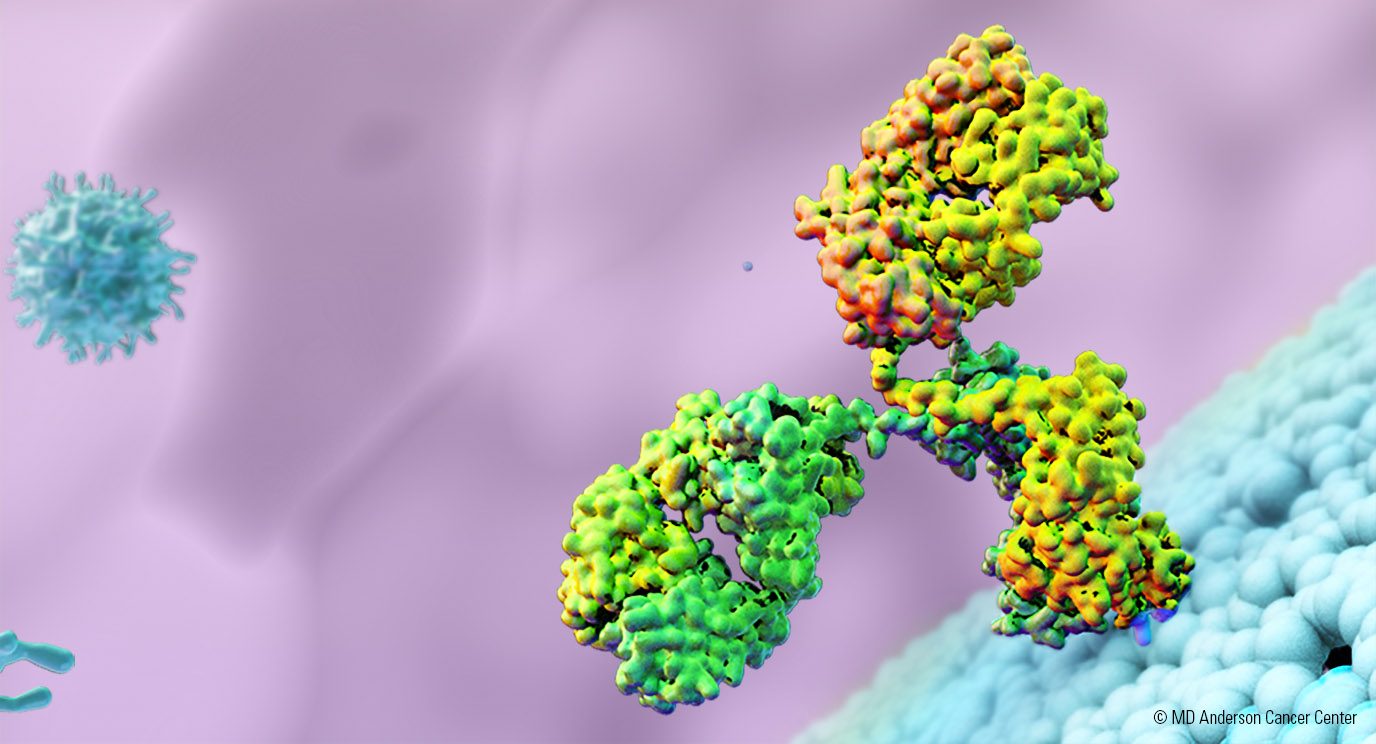How do immune checkpoint inhibitors work?
- Treatment Options
- Ablation Therapy
- Angiogenesis Inhibitors
- Awake Craniotomy
- Brachytherapy
- Breast Reconstruction Surgery
- CAR T Cell Therapy
- Chemotherapy
- Cryoablation
- High-Intensity Focused Ultrasound (HIFU)
- Histotripsy
- Hyperthermic Intraperitoneal Chemotherapy
- Immunotherapy
- Immune Checkpoint Inhibitors
- Integrative Medicine
- Interventional Oncology
- Laser Interstitial Thermal Therapy (LITT)
- Microwave Ablation
- Minimally Invasive Surgery
- MR-Linac Radiation Therapy
- Palliative Care
- Proton Therapy
- Radiation Therapy
- Radiofrequency Ablation
- Stem Cell (Bone Marrow) Transplantation
- Stereotactic Body Radiation Therapy
- Stereotactic Radiosurgery
- Surgery
- Targeted Therapy
- Theranostics
- Y90 Radioembolization
Immune Checkpoint Inhibitors
Immune checkpoint inhibitors stop the immune system from turning off before cancer is completely eliminated. They’re a type of immunotherapy.
The immune system relies on T cells to fight cancer. These specialized cells are extremely powerful and have the potential to damage healthy cells. T cell activity is controlled through “immune checkpoints,” which can be positive or negative. Positive immune checkpoints help T cells to continue their work, while negative immune checkpoints shut T cells off.
Immune checkpoints were discovered in 1995 by Jim Allison, Ph.D. Allison found that T cells are controlled by a safety mechanism or “brake” – a negative immune checkpoint protein called CTLA-4. This checkpoint protein shuts a T cell off to prevent it from accidentally damaging healthy cells. By blocking CTLA-4, Allison allowed T cells to continue working and eliminate cancer in a laboratory setting.
Allison’s work led to the development and approval of the first immune checkpoint inhibitor, ipilimumab, which blocks the immune checkpoint protein CTLA-4. Blocking CTLA-4 allows T cells to continue to do their work. Ipilimumab has extended the survival of patients with advanced melanoma.
A second negative immune checkpoint protein, PD-1, was identified in 2000. Pembrolizumab and nivolumab are immune checkpoint inhibitors that block PD-1. These drugs are used to treat several cancer types, including:
- Bladder cancer
- Breast Cancer
- Head and neck cancers
- Hodgkin lymphoma
- Kidney cancer
- Melanoma
- Non-small cell lung cancer
A third type of immune checkpoint inhibitor blocks PD-L1, which is a molecule that triggers the negative immune checkpoint PD-1. Atezolizumab, avelumab and durvalumab are immune checkpoint inhibitors that block PD-L1 and are used to treat several cancer types, including:
- Bladder cancer
- Breast Cancer
- Merkel cell carcinoma
- Non-small cell lung cancer
Each immune checkpoint inhibitor has distinct side effects. Moreover, not all types of cancer are currently treatable by this type of immunotherapy. A patient’s overall health and type of cancer determine which immune checkpoint inhibitors can be considered as treatment options.
MD Anderson offers many clinical trials investigating whether immune checkpoint inhibitors can be used to treat cancers other than the ones listed above. Many of these clinical trials are examining whether immune checkpoint inhibitors can be combined to enhance their effectiveness. MD Anderson is also studying the benefit of giving immune checkpoint inhibitors before or after other types of therapy, such as chemotherapy or surgery. Additionally, studies are underway to better understand why some patients respond to immune checkpoint inhibitors, but others do not.
Current immune checkpoint therapies target negative immune checkpoint proteins. MD Anderson is also investigating positive immune checkpoints, which also allow T cells to continue working. We’re leading several clinical trials examining the effectiveness of drugs that target positive immune checkpoints to sustain the cancer killing activity of T cells. Additionally, our researchers are identifying new positive immune checkpoint proteins and developing drugs that can be used to target them.
Clinical Trials
Jim Allison, Ph.D., on his immunotherapy research
How does cancer immunotherapy work?
Featured Articles

Which cancers can be treated with immune checkpoint inhibitors?

LAG-3 inhibitors: A new type of immunotherapy

Stage IV Hodgkin lymphoma survivor: An immunotherapy clinical trial put me in remission

T cells, B cells and the immune system

Can immunotherapy treat cancer in patients with autoimmune diseases?

Immunotherapy and colorectal cancer: Where we are and what’s ahead
Help #EndCancer
Give Now
Donate Blood
Our patients depend on blood and platelet donations.
Shop MD Anderson
Show your support for our mission through branded merchandise.
